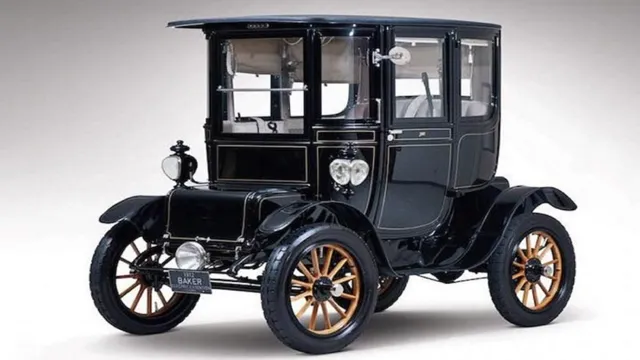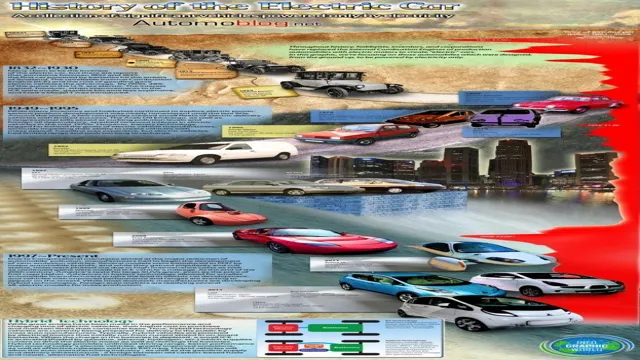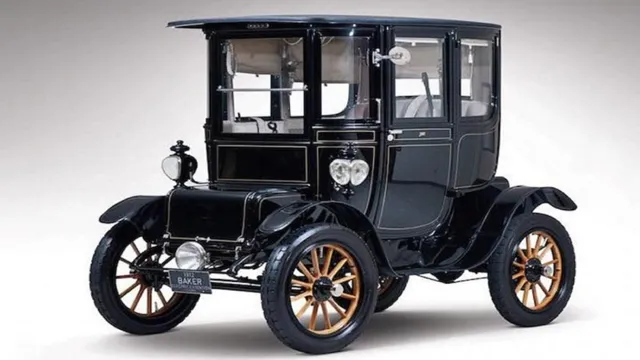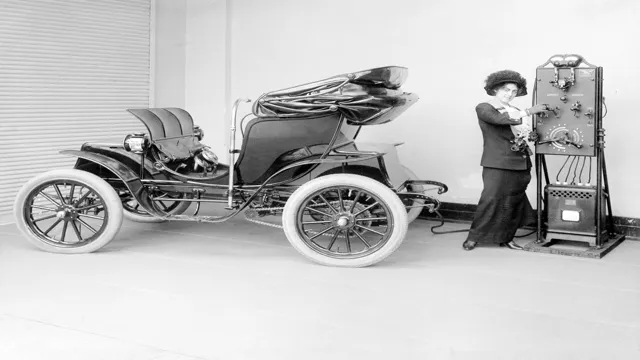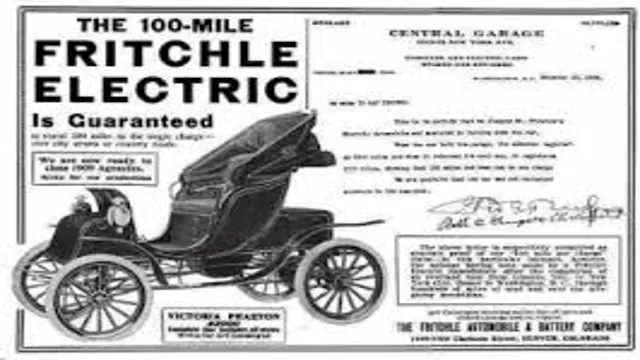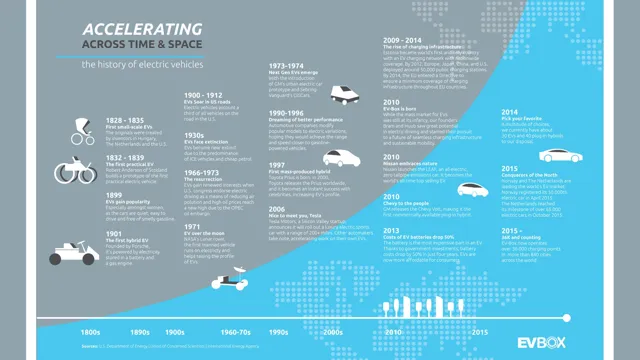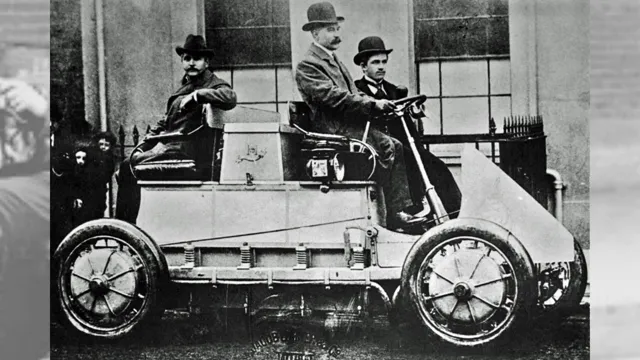Revolutionizing the Roads: Exploring the First Electric Cars in History
Have you ever wondered when the first electric cars were introduced to the world? While electric vehicles are currently gaining popularity, they have been around for much longer than you might think. In fact, the history of electric cars dates back to the early 1800s, long before the invention of the internal combustion engine. At that time, electric cars were a common sight on the streets of major cities, widely considered a luxury item for the rich and elite.
These early electric cars may not have had the same level of speed and efficiency as their modern counterparts, but they paved the way for the development of the electric car we know today. Join us to delve into the fascinating history of the first electric cars and discover how they have influenced modern-day transportation.
Early Inventions
The early days of automotive history were marked by a flurry of inventions and advancements, one of which was the first electric cars in history. These early inventions consisted of vehicles with electric motors powered by rechargeable batteries, which provided a cleaner and more efficient mode of transportation compared to fossil fuel-powered vehicles. The first electric cars were developed in the late 19th century and were primarily used for short-distance travel, such as within cities.
Despite their practicality, these early electric cars were quickly overshadowed by the explosion in popularity of gasoline-powered vehicles, which had longer ranges and were easier to refuel. However, in recent years, electric cars have made a comeback, thanks to advancements in battery technology and environmental concerns about the impact of fossil fuels on the planet. Today, electric cars are seen as the future of the automotive industry, and they continue to evolve and improve at a rapid pace.
1800s: Thomas Davenport’s DC Electric Motor Car
The 1800s saw many inventors experimenting with electricity, and one of the most notable figures was Thomas Davenport, who is credited with inventing the DC electric motor car. Throughout his career, Davenport was fascinated by electricity and the potential applications of this wonder of nature. Before he came up with his electric car, he first designed a DC motor in 1834, which utilized electromagnets to produce rotary motion.
This invention led to his idea of using a similar motor to power a vehicle. Davenport built his first electric car prototype in 1835, which was powered using a battery and achieved a top speed of four miles per hour. Despite being the first electric car, Davenport’s invention did not gain commercial success as he was unable to improve on the battery technology of his time.
Nevertheless, his invention was a groundbreaking development in the history of automobiles and laid the foundation for the future growth of electric cars.
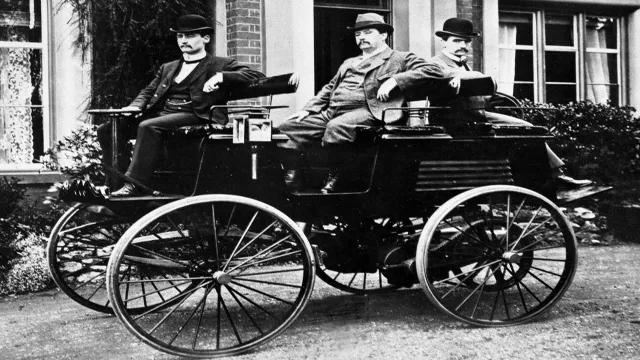
1830s: Robert Anderson’s Electric Carriage
electric carriage, Robert Anderson, invention The 1830s saw an exciting time in the world of transportation, with Robert Anderson inventing the electric carriage. This early invention was a significant milestone in the development of electric vehicles, as Anderson’s carriage used primary batteries to power an electric motor instead of the traditional combustion engine. One of the most exciting aspects of this invention was that it offered a cleaner and more efficient way of transportation, without the harmful emissions of the combustion engine.
Although the technology of the time limited the range of the electric carriage, it was still a remarkable feat in technology. Anderson’s invention may not have revolutionized the transportation industry at the time, but it laid the groundwork for future advancements in electric vehicles. It is a testament to the ingenuity and innovation of inventors throughout history, laying the foundation for the world we live in today.
Early Commercialization
The first electric cars in history were invented back in the mid-19th century, but it wasn’t until the early 20th century that we saw their commercialization. Between 1890 and 1910, electric cars were popular for their silent operation, ease of use, and low maintenance costs. They were especially popular for urban driving due to the limited distance their batteries could cover compared to the gasoline engine.
This led to the creation of electric taxis, which emerged in cities such as New York and London. However, the rise of cheaper gasoline-powered automobiles led to the decline of electric cars in the 1920s. Fast forward to today, and electric cars are making a comeback due to the shift towards sustainability and energy efficiency.
It’s exciting to see how much they’ve evolved since the early days of their introduction to the market.
1890s: La Jamais Contente Electric Vehicle
The 1890s marked the early commercialization of electric vehicles as a viable transportation option. One of the most revolutionary cars during this time was the La Jamais Contente, the world’s first electric race car. It was designed and driven by Belgian race car driver Camille Jenatzy, and it set the world’s first electric land speed record in 1899, reaching a speed of 10
88 km/hr. This achievement made everyone sit up and take notice of the potential of electric cars. It was clear that the electric vehicles of the future were not going to be slow and cumbersome.
Instead, they would be just as fast and efficient as gasoline-powered cars, and without all the noise and pollution. The La Jamais Contente was a true game-changer that paved the way for the electric cars we know today. Its legacy still lives on and serves as a reminder of how far we have come and how much further we can go in the world of electric vehicles.
1900s: Electric Vehicles from Major Automakers
In the early 1900s, major automakers in the United States began experimenting with electric vehicles, and commercialization of these vehicles soon followed. Electric vehicles, or EVs, were seen as a promising alternative to gasoline-powered vehicles due to their lower operating costs and potential to reduce air pollution. For example, in 1900, the Pope Manufacturing Company began producing the Columbia Electric Phaeton, a battery-powered vehicle that could reach speeds of 15 miles per hour and travel up to 40 miles on a single charge.
Other automakers such as Oldsmobile, Studebaker, and Cadillac also produced electric vehicles during this time period. However, the high cost of batteries and the limited range of electric vehicles ultimately led to a decline in their popularity, and gasoline-powered vehicles became the dominant form of transportation. Nonetheless, the early commercialization of electric vehicles paved the way for the future development and innovation that we see in electric cars today.
1908: Model T Ford & the Decline of Electric Cars
The early commercialization of automobiles in the early 1900s brought the Model T Ford into the spotlight, and with it, came the decline of electric cars. The Model T Ford revolutionized transportation with its affordability and mass-production capabilities. In contrast, electric cars were expensive and didn’t have the same range as gasoline-powered cars, making them less appealing to the average consumer.
Despite their eco-friendliness and quiet operation, electric cars couldn’t compete with the power and speed of gasoline engines. Henry Ford famously said, “You can have any color you want, as long as it’s black,” and this sentiment echoes the sentiment of the era where efficiency and affordability were prized over luxury. As a result, electric cars had a rough start in the early days of the automobile industry, but with the modern-day focus on sustainability and eco-friendliness, they are making a comeback.
Resurgence in the 21st Century
The first electric cars in history were developed in the early 19th century, and it’s fascinating to see how they have made a resurgence in the 21st century. Modern technology has allowed us to overcome the limitations that contributed to the decline of electric cars in the past, such as limited range and slow charging times. Nowadays, electric cars are faster, can travel longer distances, and have a variety of charging options available, from fast chargers to wireless charging pads.
Additionally, with the growing concern for the environment, eco-friendliness has become a top priority for many consumers, leading to the rise of electric vehicles as the future of transportation. As we look towards the future, we can see that the first electric cars in history have paved the way for a greener and more sustainable world.
2006: Tesla Roadster & Modern Electric Cars
The 21st century has seen a significant resurgence in electric cars with the introduction of the Tesla Roadster in 200 This modern electric car changed the game, making electric vehicles a viable option for regular consumers. The Tesla Roadster boasted impressive specs with a 245-mile range and a top speed of 125 mph.
The company saw great success with the release of the Roadster, leading to the production of other electric cars like the Model S and Model X. The resurgence of electric cars can be attributed to the increased awareness of the negative environmental impacts of traditional gas-powered cars. More and more people are looking for eco-friendly alternatives, and electric cars fit the bill perfectly.
With advancements in technology, modern electric cars can now provide a more reliable and convenient driving experience, making them a competitive option for the everyday driver. It’s amazing to think that electric cars have come so far in just a span of a few short years. Will gas-powered cars become a thing of the past? Only time will tell.
2021: Popular Electric Cars & Future Prospects
Electric Cars The 21st century has seen a resurgence in the popularity of electric cars. With the increasing awareness of the need for sustainable and eco-friendly modes of transportation, electric cars have become a game-changer in the automotive industry. Electric cars have significant environmental benefits since they emit fewer pollutants and have lower carbon footprints.
The market for electric cars is also on the rise as more and more car manufacturers are jumping on the bandwagon to produce electric cars. Tesla, one of the pioneers in electric car manufacturing, has been dominating the market with its sleek and high-performance electric vehicles. However, a significant challenge for electric cars is the limited range due to battery capacity.
As technology continues to advance, the prospects for electric cars are undoubtedly bright. Battery technology is continually improving, which means that soon, electric cars will be able to have an equal or even greater range than their gasoline counterparts. Furthermore, the continued development of charging infrastructure, the growth of renewable energy, and government incentives will continue to propel the market for electric cars even further.
Conclusion: A Look at the Past & Future of Electric Cars
And just like that, the first electric cars in history were born. They may not have been the fastest or most efficient vehicles on the road, but they paved the way for a revolutionary shift in the automotive industry. From the early experiments of Robert Anderson and Thomas Davenport to the sleek and modern designs of Tesla and other electric car manufacturers, it’s clear that electric cars are here to stay.
So next time you’re cruising down the highway in your EV, take a moment to thank those pioneering inventors who dared to dream of a cleaner, greener future for us all. And maybe give a nod of appreciation to the humble donkey who helped spark the electric car revolution in the first place. After all, without him, who knows where we would be today?”
FAQs
When were the first electric cars invented?
The first electric cars were invented in the early 1830s.
Who invented the first electric car?
The first practical electric car was invented by Thomas Davenport in 1835.
How far could early electric cars travel on a single charge?
Early electric cars could travel for about 20-40 miles on a single charge.
Why did electric cars lose popularity in the early 20th century?
Electric cars lost popularity in the early 20th century due to the rising availability and affordability of gasoline-powered cars.
